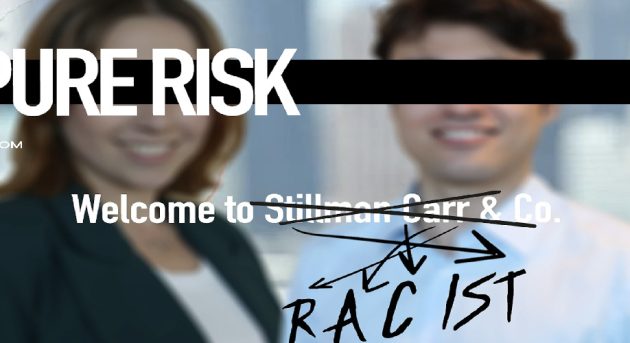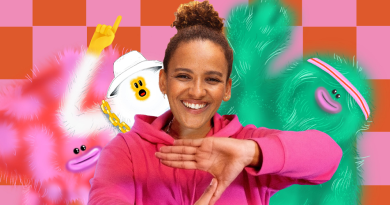Pure Risk – An insight into the Corridors of Power with William Duke
Inside the world of high finance and prestige, stories often gloss over the human element in their search for explosive drama and sensationalism. But not for William Duke. With his latest production, ‘Pure Risk’, debuting at the Sydney Fringe Festival, Duke sheds light on what happens behind those marble walls and gives audiences an intricate look into the minds of those navigating these powerful corridors.
To understand Duke’s storytelling approach, one needs to look no further than his ongoing education at NIDA, a place that he says has expanded his understanding of himself and his work. “NIDA is really great at making you do that work -making the subconscious stuff conscious,” Duke mentions. It’s this rigorous self-exploration, coupled with the institution’s commitment to nurturing voices, that has given Duke the clarity and confidence to articulate his interests.
You’re currently completing your MFA in Writing for Performance at NIDA. How has this experience influenced or shaped the narratives you bring to the stage, especially in shows like Pure Risk?
It sounds a little cliche but a place like NIDA really teaches you to define yourself. I think for a young writer there can be some resistance to that. It can be vulnerable and feel like you’re boxing yourself in a bit. Why can’t I just say I write about whatever I want? But it actually has the opposite effect – it expands your understanding of yourself and your work.
NIDA is really great at making you do that work -making the subconscious stuff conscious, and then giving you the vocabulary to express that. And that’s really important to learn – that there’s nothing cringe or self-indulgent about speaking up, owning your work, and articulating your interests.
From medieval castles to modern investment banks, Duke’s fascination with power dynamics shines through. But it’s not just the glitz and glam that draws him in. “Power often suggests a binary… Winner and loser,” Duke reflects. However, the real allure lies in blurring those distinctions. This approach resonates especially in the backdrop of “Pure Risk”, where characters not only manage these contradictions but employ them strategically.
Many of your stories, including Pure Risk, delve into the worlds of power, be it in investment banks or medieval castles. What draws you to these settings, and what do you believe they reveal about the darker strands of human nature?
I think audiences are drawn right now to stories about worlds where there’s concentrations of power and privilege. Pure Risk definitely leans into the fun of unravelling that sort of world – with all its specific rituals, vocabulary, dynamics. I hear a lot of criticism lately that these ‘top 1%’ stories are really just glamourising power.
I would say it goes much deeper. Power often suggests a binary. Upper and lower. Master and subject. Winner and loser. The compelling thing about entering these worlds from the inside is when you see those binaries breakdown and blur.
It’s not really as simple as ‘The bad guy has a sad backstory so I understand how he came to be bad.’ I think it’s more so about watching how human beings in power can be monsters and victims simultaneously – and how they not only manage, but use that contradiction. You think about Kendall Roy – he rationalises a lot of his shit behaviour because his Dad promised him something and took it away. He turns that injustice, his victimisation, into a bit of a get out of jail free card.
One of my favourite scenes in Pure Risk involves a character recounting an experience with discrimination – but they do so in the context of defending this classically corrupt investment bank. I love that irony. Should we really feel bad? When they’re the establishment asshole? What do we do with that?
Discussing the portrayal of male characters, Duke feels there’s a gap that needs filling. While the world has seen and celebrated complex female characters, male protagonists often lack nuance. But Duke isn’t interested in rehashing the cliched ‘man as an anti-hero’ narrative. Instead, he aims to redefine masculinity, placing male characters in scenarios where they must employ tactics typically associated with femininity. In ‘Pure Risk’, this plays out brilliantly through the character of Luke, the gay, progressive “Nice Guy”, exploring the murky waters of modern-day male dynamics.
You’ve mentioned your belief that the best characters in television for the past decade have been mostly women. How do you aim to bring a fresh perspective to male characters, especially in the competitive and complex world portrayed in Pure Risk?
I think female writers are much better about articulating the idea of female experiences – and the way in which women exist and interact in a totally different way to men. We hear a lot of terms like female rage and female obsession and female friendship.
I’m making a generalisation here – but men can be plain boring in comparison. Male friendship is what? A buddy comedy. An obsessive man means straight A stalker. And male rage has none of the nuance of Fleabag.
I want to be careful about what I mean when I say complex men. Great female characters really came from the pushback against the Don Drapers and Walter Whites – stories propelled by this fascination with a man and his psychology. I’m not interested in a repetition of that man as anti-hero.
What I want to do is put male characters in a position where conventional outlets of masculinity aren’t available to them – they can’t fight, yell, puff their chest, make big shows of power. I want to see what happens when they need to deceive, seduce, repress, especially with one another – all these things we would usually associate with the feminine.
Pure Risk is set in a world which we usually consider very macho – Wolf of Wall Street sort of thing. Part of what makes it interesting is that our central male character, Luke, is not that. He’s not shouting obscenities on the trading floor. Quite the opposite, actually. He’s a gay, progressive Nice Guy type. And it’s interesting to see how that can have its own sort of sliminess and even brutality. He’s also the gay best friend of our female character, Mia. Honestly, you really could read Pure Risk as a big think piece on the GBF relationship. This submission he has to her, and also the added element of class, make it a strange power dynamic, something we don’t usually see between the sexes.
Whether it’s privileged teenagers’ banter in ‘Killing Mr. Barber’ or high-stakes decisions in ‘Pure Risk’, Duke thrives on depicting the psychological games people engage in. It’s not just about winning for the sake of winning; it’s about the thrill that comes with the risks one takes to get there. For Duke, these games form a perverse intimacy that he believes audiences relate to deeply.
From the banter between privileged teenage boys in ‘Killing Mr. Barber’ to the high-stakes world of finance in ‘Pure Risk’, you often explore the psychological games people play. What is it about these dynamics that you find most compelling, and how do they resonate with contemporary audiences?
I’m a sucker for psychological games. My favourite stories are the ones where you almost need a chess board to see how characters are moving. I think games bring out something strange in us – because on the one hand it’s fun and playful – but it can also get serious. People can be competitive. Obsessed. That’s a very fascinating and slippery slope. How out of that fun can emerge your shadow self. That’s where you really get to the core of who people are.
Pure Risk is all about the head rush that comes not only from winning, but the risks you take to do so. The game you play to get there. I think audiences have always been interested in that. It’s so tense and exciting before Macbeth kills the king – after that it’s all downhill. The thrill really comes from that anticipation – of taking that risk. Why is it so intoxicating?
I also think there’s something about games and intimacy which we can all understand. We all play games, conscious and unconscious, in our relationships – it can be so hard to connect with another human being, but playing with them is so alluring because it provides the social contact we need, while letting us be removed in a way. Nothing matters when it’s all just fun. That’s a perverse sort of intimacy. When the cat and mouse begin to understand each other better than anyone else. I love that.
From his one-man show, ‘Killing Mr. Barber’, a personal exploration of his school days, to the intricate world of ‘Pure Risk’, Duke’s evolution as a writer is evident. The former was intimate and personal, written in Duke’s voice, while the latter demanded expansive research and establishing a unique vocabulary to represent the finance world authentically. Yet, a common thread binds both: the delight in creating characters that gossip, judge, and indulge in a bit of sass.
How have you evolved as a writer and performer from your one-man show ‘Killing Mr. Barber’ to your latest endeavour, Pure Risk? What have been some of the most significant lessons or discoveries along the way?
Killing Mr. Barber was my first show. And it was also a one-man show. About my time at school! So it all felt very scary and like the biggest thing. I really wrote it in my own voice because I was the one performing, and I loved that.
While the world of Pure Risk doesn’t have those same personal stakes – it’s been a different beast. It’s much bigger, more plot-driven. There was a lot more research. And I had to find a certain vocabulary as well. That’s always the challenge when writing these black box worlds – you need to walk a fine line because you don’t want to flex too hard on the audience. ’Hey look, I know all these obscure financial terms.’ It becomes silly. However, you also want them to feel like this could be a version of how people in these places would speak and interact. And there’s a joy sometimes in just feeling that, even if you don’t understand every word being said.
What I will say is that Killing Mr. Barber and Pure Risk both have characters who gossip and judge and bitch. I think I’m discovering I maybe just tend to write that haha! There’s just something so funny to me about going into these big prestigious worlds with characters who are just so bitchy and ready to roast anyone. And makes it accessible for an audience.
For anyone looking to delve into a world where power dynamics meet raw human emotion, ‘Pure Risk’ promises to be a compelling journey. With William Duke’s vision, one can be sure to encounter characters that are multifaceted, stories that blur boundaries, and a narrative that leaves a lasting impact.
Don’t miss this captivating experience at the Emerging Artist Share House, running from the 19th to the 23rd of September, 9-10 pm.
Book your tickets HERE.




